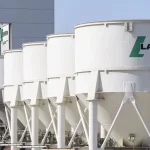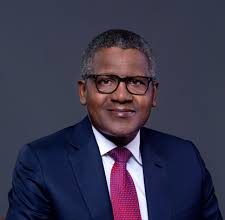Africa’s richest man, Aliko Dangote, has revealed that eighty-five per cent of the commissioning work at his $20 billion refinery was done by Nigerians.
The industrialist made this revelation while hosting a delegation from the Lagos branch of the Nigerian Society of Engineers at the Dangote Petroleum Refinery in Ibeju-Lekki, Lagos State.
“Honestly, if we had fully understood the magnitude and challenges involved, we may not have even attempted it, but it is because we didn’t know what we were into initially and the courage, or maybe, naivety that got us this far,” Dangote confessed.
The refinery, designed to process massive volumes, will accommodate about 600 product vessels and 240 crude oil tankers annually.
Dangote detailed the project’s challenges, including constructing on swampy terrain, manually uprooting thousands of trees, and dredging 65 million cubic meters of sand from 20 kilometers offshore—measures taken to protect local fishing communities.
“Sand-filling alone took 18 months but we made a deliberate decision to preserve the livelihoods of those living nearby, especially fishermen,” he explained.
Dangote emphasized his commitment to developing Nigerian engineering capacity, noting that while the project initially planned for up to 50,000 foreign workers, it ultimately employed only 12,000–14,000 expatriates.
“Eighty-five per cent of the commissioning work was done by Nigerians…Today, we are our own EPC (Engineering, Procurement and Construction) contractors. We are building this country ourselves,” he stated.
When asked about empowering local professionals, Dangote responded: “There are many more projects coming, and with them, we will continue to develop our engineering base…Skills are assets, whether they are used here or abroad. We want Nigeria to earn from exporting knowledge, not just oil.”
NSE Lagos Branch Chairman Olukorede Kesha hailed the refinery as an African engineering milestone: “We have heard so much about the refinery but seeing it ourselves has been extraordinary.”
She praised the dominance of Nigerian expertise in the project, noting, “If we have more of this kind of development in Nigeria, unemployment and poverty would be in the past.”
The delegation also inspected the Lagos-Calabar coastal highway project, describing it as a transformative national asset.







